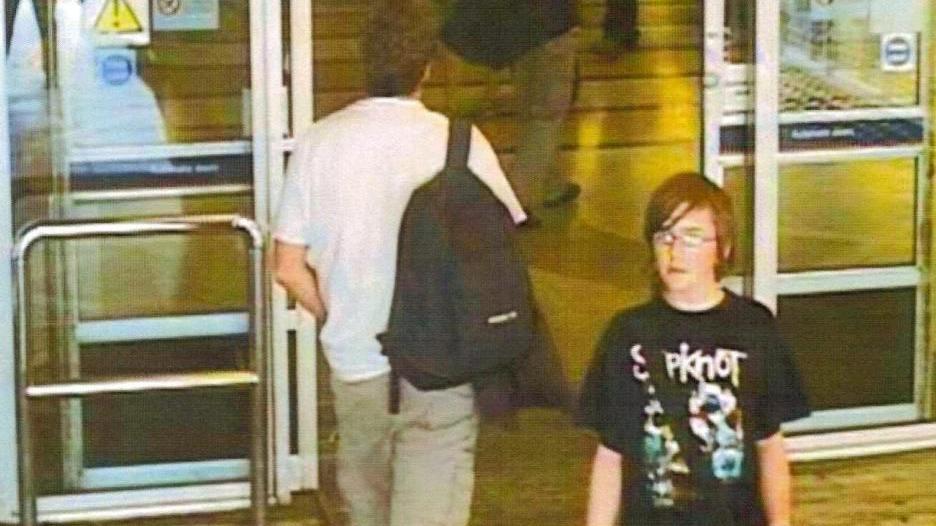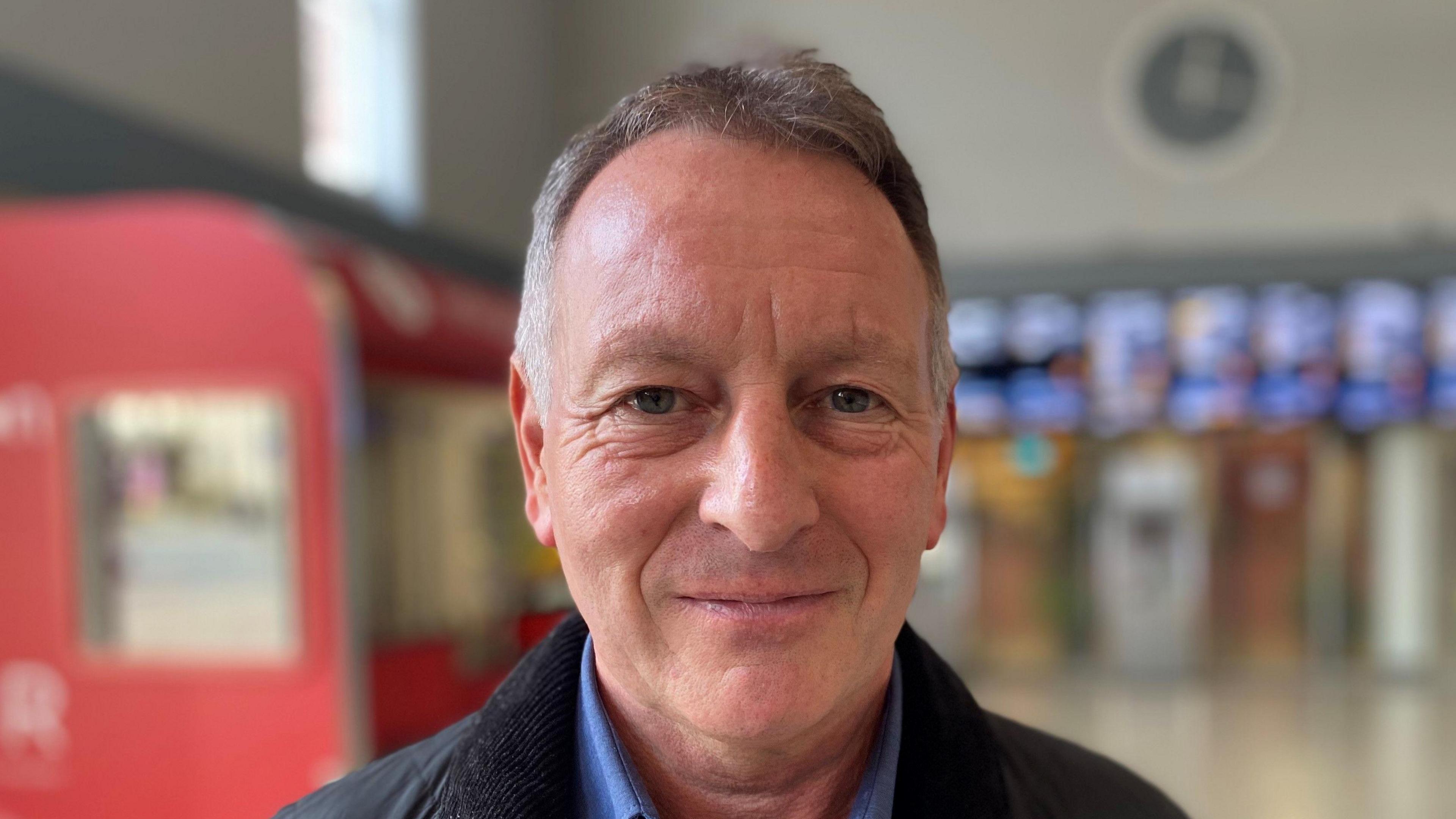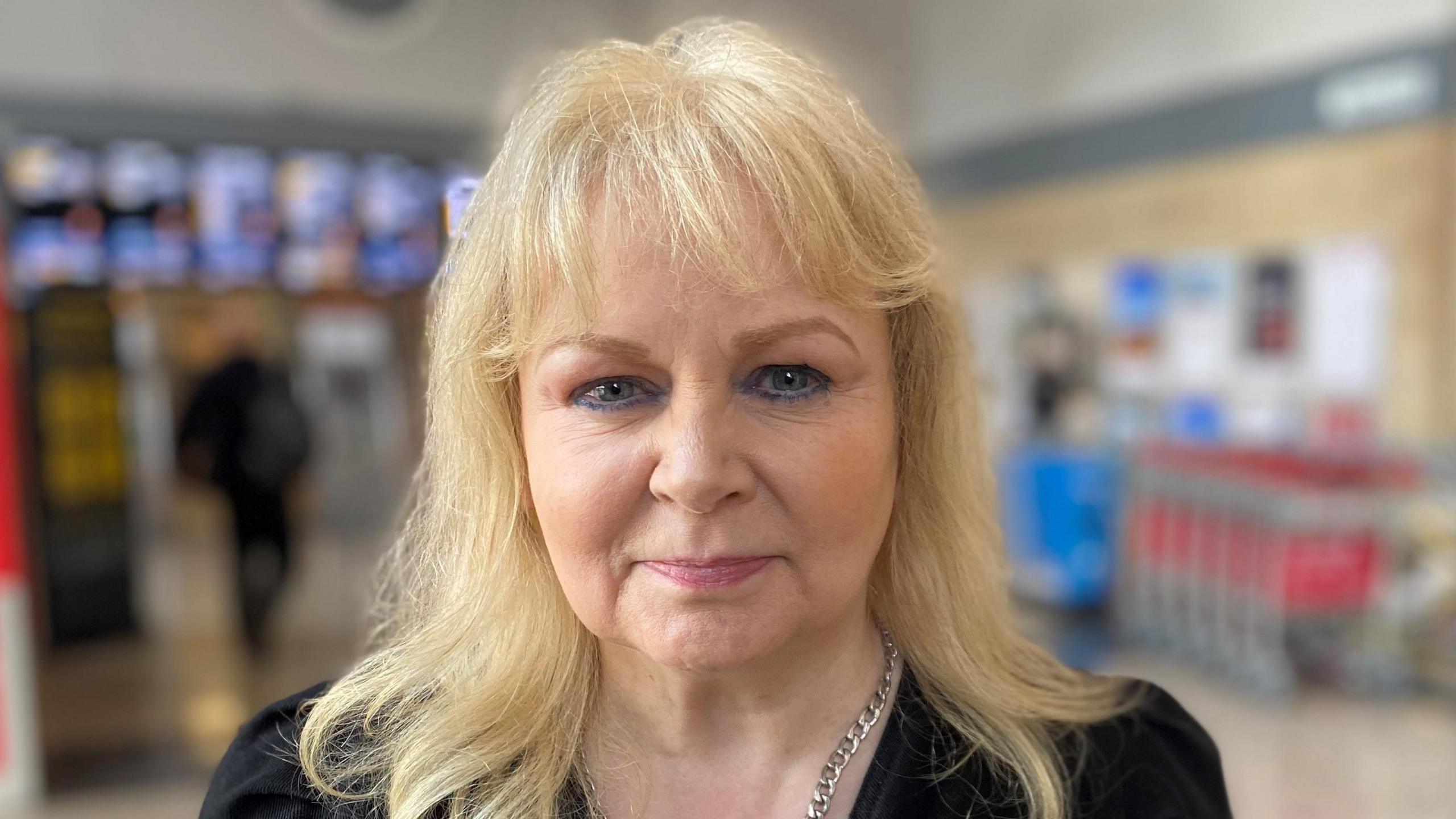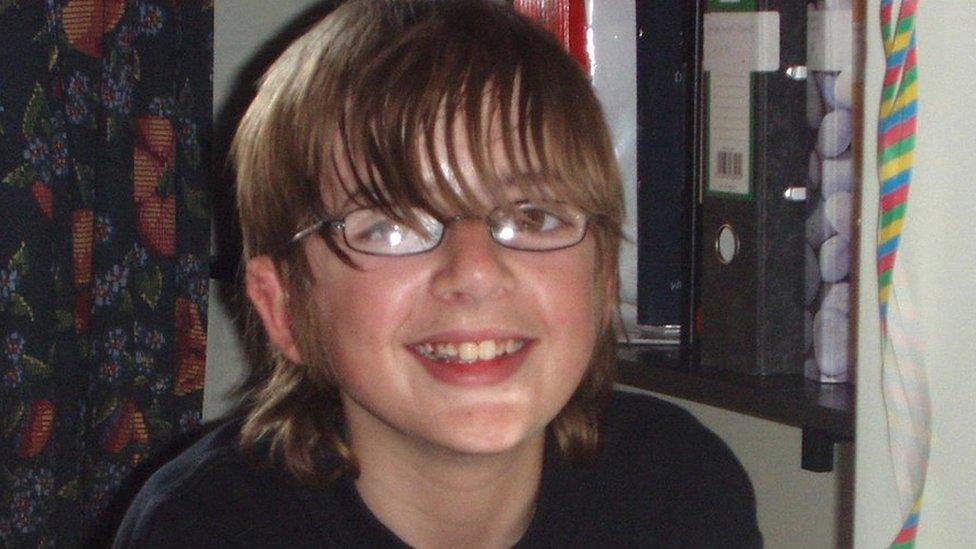Missing boy's dad praises train firm's focus on vulnerable

Andrew Gosden, from Doncaster, has been missing since 2007
- Published
Safeguarding training being given to rail staff to help them look out for missing people has been welcomed by the father of a teenager who disappeared 17 years ago after catching a train to London.
Andrew Gosden, who was 14 when he went missing from Doncaster, was last spotted on CCTV leaving Kings Cross Station in September 2007.
LNER, which operates services between Doncaster and London, said staff now received training to help them identify vulnerable people and offer them support and over 120 missing people had been found by its employees in the last year alone.
Andrew's dad, Kevin, said the safeguarding work now being carried out by LNER "has the potential to really change a lot of lives".

Andrew was last seen on CCTV at Kings Cross Station on 14 September 2007
Mr Gosden has now spent nearly two decades trying to find out what happened to Andrew.
His son had emptied his bank account and had bought a one-way ticket from Doncaster to London Kings Cross, where he was last caught on CCTV on 14 September 2007.
Mr Gosden said anything that could be done by rail staff and others to help spot people who might have gone missing or who were in need of help was welcome.
"It’s not just about that missing person. It’s about the whole family and friends," he said.
"It really does have a huge impact on more people than you think about.
“We’re now talking 17 years after Andrew went missing and we still wonder if he’s dead or alive."

Jim Rawcliffe, from LNER, said staff were being trained to "go speak" to people they had concerns about
According to LNER, in the past 12 months its staff had found a total of 126 people who were missing and they had referred more than 500 people for support from social services, mental health teams or charities.
The company said safeguarding had become a priority for the whole rail service in recent years.
Jim Rawcliffe, LNER's security and emergency planning manager, said: "We train our staff to look out for anyone who might be distressed, concerned, or just not look at ease with the surroundings."
The training was "all about encouraging that member of staff to go and speak to the person".
"It’s just trusting your gut feeling that something isn’t right and doing something about it," he added.

Martha McBrier, from the Missing People charity, said trains offered vulnerable people the "notion of feeling safe"
Martha McBrier, from the Missing People charity, said its staff spoke to about three people each day on trains or at stations who said they were either missing or considering going missing.
Ms McBrier, the charity's helpline manager, said it was very common for someone who felt like going missing to arrive at a railway station and just board a train.
“It’s this notion of feeling safe or feeling like something is moving - that they can go somewhere,” she said.
“Sometimes they might arrive and not even know where it is they want to go, but they just get on a train because it’s somewhere safe they can be.”
Kevin Gosden welcomes safeguarding training given to rail staff
Kevin Gosden said not knowing what had happened to Andrew after arriving at Kings Cross was almost impossible to deal with.
"He walked out of the station, but someone, somewhere, must have seen him, noticed him, spoken to him, surely?" he said.
"Every year that goes by feels like a year further away from getting any possible answer to what on earth happened - and we still miss Andrew."
Listen to highlights from South Yorkshire on BBC Sounds, catch up with the latest episode of Look North or tell us a story you think we should be covering here, external.
Related topics
- Published14 September 2017
